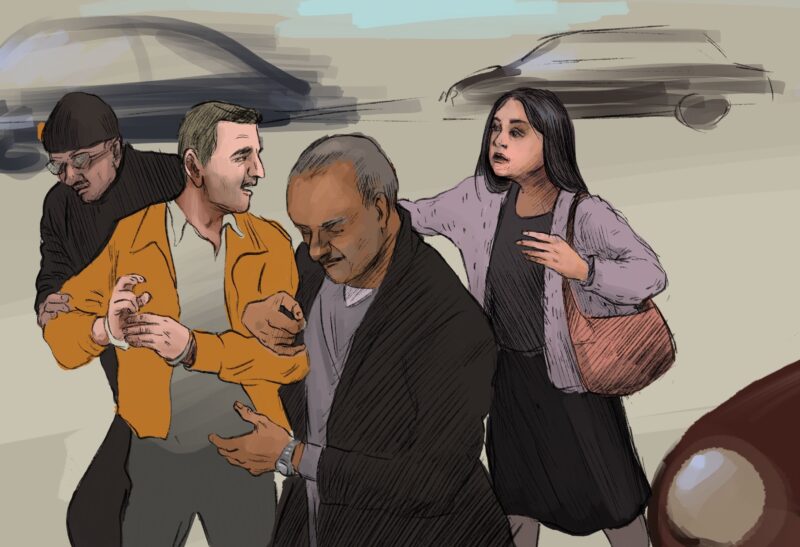For the first time in Azerbaijan's history perhaps the most important and beloved holiday in the country was marked amid a quarantine.
Translated from Persian, the word Novruz means "new day". It coincides with the day of the vernal equinox, which falls on 20-21 March each year. Novruz is a holiday that signals the arrival of spring according to the astronomical solar calendar of Iranian, Kurdish and Turkic peoples. Although Novruz is mainly marked in Muslim countries, it has nothing to do with Islam and is considered a religious holiday derived from Zoroastrianism.
At the state level, Novruz is marked in the Central Asian countries, Azerbaijan, Albania, and Macedonia.
In 2009, Novruz was included in the UNESCO List of Intangible Cultural Heritage of Humanity. Ever since, 21 March was declared International Day of Nowruz.
Novruz has been marked in Azerbaijan for five to six millennia now. A ban on celebrations, which was lifted in 1988, existed in Soviet times.. Since the day Azerbaijan gained independence, the official Novruz holiday season has been five days long. This year, the holiday season includes the period between 20 March and 28 March. However, Azerbaijanis spent these eight days at home due to the quarantine because of the coronavirus.
How is Novruz normally marked?
Preparations for Novruz begin a month in advance. Tuesdays are celebrated in the run-up to the holiday. The first Tuesday of Novruz – "Su Chershenbesi" (Water Tuesday) – falls on the last Tuesday of February. It is followed by "Od Chershenbesi" (Fire Tuesday) and "Yel Chershenbesi" (Wind Tuesday).
According to old beliefs, on "Water Tuesday" rivers are freed from their icy cover, on "Fire Tuesday" bonfires need to be made to warm the earth. On "Wind Tuesday" the breath of spring renews our spirit and, finally, on the last Tuesday the earth awakens from winter. It is believed that on the last Tuesday, soil is ready to be cultivated and sowing can begin. The last pre-Novruz chershenbe is marked on the last pre-holiday Tuesday. This year it fell on 17 March.
Since the holiday originates from fire worship, fire is one of the main symbols of Novruz. On all pre-Novruz Tuesdays and on the actual holiday evening, it is customary to make bonfires as dusk sets in and jump over them while uttering the words, "let all my hardships burn in the fire."
On 20 March, the Baku Boulevard and Fountains Square in the center of the capital city host grand-scale public festivities, a festive fair, and concerts.
How was it marked this year?
On 10 March Azerbaijanis learned that there would be no traditional boisterous celebrations or festivities in the country. It was on that day that the government announced that all traditional Novruz festivities were cancelled.
Preventive measures taken in Azerbaijan as a result of the Covid-19 global pandemic made traditional Novruz festivities impossible.
True, Baku's central streets were traditionally decorated for the holiday, but they were empty. There were not too many people at the capital city's marketplaces, which are normally crowded and packed with customers during Novruz.
From 19 to 29 March, public transportation services between towns and regions of the country are stopped. Therefore, many people have had to give up on plans to travel to the districts to celebrate the Novruz holiday with relatives.
There was no one at cafes and restaurants, which closed at 2100 on 20 March in line with quarantine regulations. But there were not too many customers in them even before that either.
Things were slightly different on Novruz on the outskirts of the Azerbaijani capital. In some parts of Baku's dormitory areas people still made traditional bonfires. Someone even ventured out together with their children.
Yet another one of numerous Novruz traditions is the following: On the holiday evening, children knock on neighbors’ doors, put hats at their doorsteps and hide. The owners of those houses are supposed to return the hats with Novruz sweets in them and, sometimes, money. This time round, children wore medical masks when putting hats at doorsteps. An Azerbaijani Facebook user even joked that they had stockpiled on masks, alcohol and sanitizers especially for this Novruz. The user planned to put those items, not traditional sweets, in kids' hats, and advised others to follow suit.
Although the virus has driven Novruz from the streets into homes, Azerbaijanis are trying to mark their holiday the best way they can. This time, they are doing it quietly, surrounded by their families.
"The virus is out there, there is nothing you can do about it. But you cannot forget about Novruz either. After all, it is such a big part of our culture. You need to mark it, but take all precautions," a man who lives in one of Baku's dormitory areas tells us by a Novruz bonfire.
/With the support of the Russian Language News Exchange



